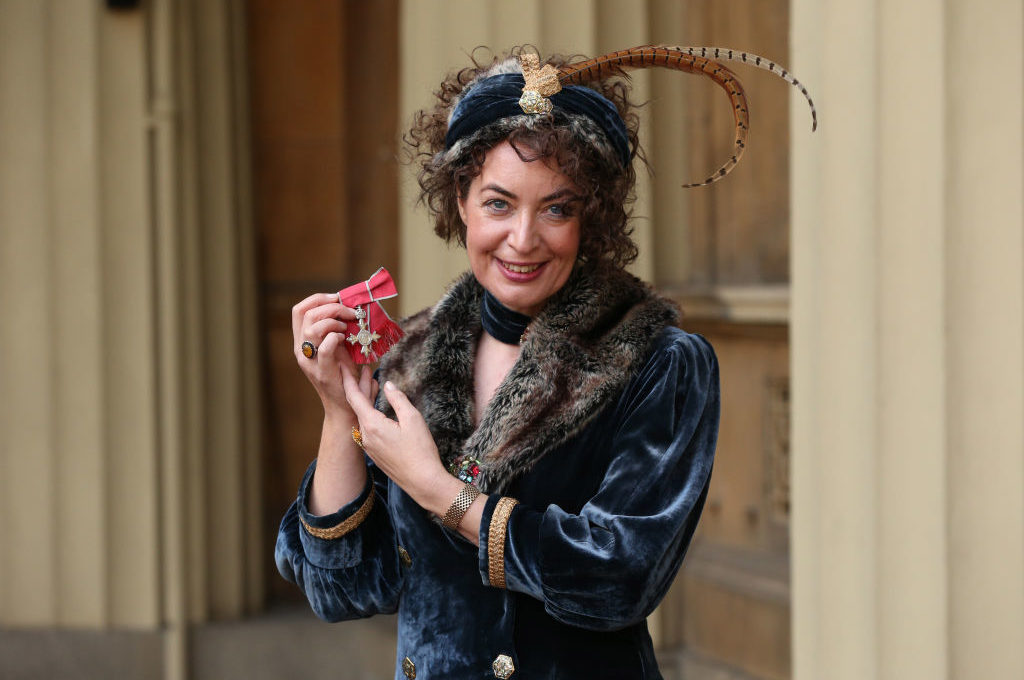‘There’s more than one way to burn a book’, wrote Ray Bradbury, in a coda to the 1979 edition of his anti-censorship classic, Fahrenheit 451. The case of Kate Clanchy, the Orwell Prize-winning author, currently rewriting her book after a particularly strange fit of identitarian pique, shows us just how true that is.
The story of Clanchy’s sudden fall from grace in the publishing world is utterly mad, even by today’s standards. She is an author, poet and teacher. In 2019, she published Some Kids I Taught and What They Taught Me, a memoir reflecting on her time teaching in an Oxford comprehensive, to critical acclaim.
But in the two years since, the bounds for acceptable thought and expression have apparently shrunk to such an extent that it is now being painted as a racist screed. Tweeters and Goodreads reviewers recently began criticizing the book online, over its descriptions of ethnic-minority and disabled pupils in particular, and it quickly turned into a huge storm.
Picador, the book’s publisher, released a statement on August 6, pledging to ‘update the book for future editions’. It then had to issue another statement three days later because the first one was deemed insufficiently strong enough — this time apologizing for the ‘emotional anguish’ the book had caused.
The situation is faintly Stalinist, with a groveling apology following the howling denunciation. Clanchy originally protested on Twitter that she was being unfairly smeared. She also (falsely, it appears) claimed that certain lines were being misattributed to her book. But inevitably she has now fallen in line.
‘I’ve been given the chance to do some re-writing on Some Kids. I’m grateful’, she wrote on Twitter on Monday, as if reading from a hostage letter. ‘I know I got many things wrong, and welcome the chance to write better, more lovingly.’ She blamed her initial kneejerk reaction on a bereavement. ‘I am not a good person’, she added, just in case she hadn’t laid it on thick enough.
Anyone associated with her also caught flak. His Dark Materials author Philip Pullman had to apologize for daring to defend Clanchy. He said he ‘reacted in haste’ and apologized for ‘causing harm’. Poetry Wales magazine has issued a bizarre apology for publishing a conversation with Clanchy, on a different topic, prior to the scandal.
All this, and for what? A handful of lines wrenched out of context. The main offenders are Clanchy’s descriptions of the appearances of her diverse array of students, including phrases like ‘chocolate-colored skin’ and ‘almond-shaped eyes’. She has also been called ‘ableist’ for describing two autistic pupils as ‘unselfconsciously odd’ and ‘jarring company’.
Now I haven’t read the book, like most of the people who are outraged by it. But I struggle to believe it is ‘rooted in eugenics and phrenology’, as writer Monisha Rajesh somewhat fantastically claimed in a comment to the BBC. (Incidentally, Rajesh thinks the book is actually beyond saving because it is ‘riddled with racist and ableist tropes throughout’.)
When it won the Orwell Prize, Some Kids was described by the judges as ‘moving, funny, full of love and offer[ing] sparkling insights into modern British society’. Clanchy clearly nurtured those pupils she worked with and helped get their poetry published. To suggest she is some hatemonger is ridiculous.
Also, why the outrage now? One of Clanchy’s more prominent critics has said she is less perturbed by the book’s ‘racist language’ than she is by ‘the publishing team that didn’t spot it, the awards that celebrated it, and the white authors defending it’. But maybe — just maybe — the lack of reaction back then was because even a few years ago people were less given to bouts of baseless hysteria than they are today.
The British publishing world seems to be importing the identitarian wars that have been raging in America. Last year, the publisher of Jeanine Cummins’s American Dirt had to cancel her book tour citing safety concerns. The book, which had been praised by noted bigot Oprah Winfrey, was accused of stereotyping and/or profiting from the stories of Mexicans. In 2019, young-adult author Amélie Wen Zhao pulled her debut fantasy novel, before it was even published, over claims that her depictions of slavery were somehow insensitive.
Back to Bradbury, we see in all this the more insidious way that the censorship of books operates today. In that previously mentioned passage he describes receiving a letter from a ‘solemn young lady’, saying that while she enjoyed one of his books he really ought to rewrite it to add more female characters and roles.
‘The point is obvious’, Bradbury wrote in his coda. ‘There is more than one way to burn a book. And the world is full of people running about with lit matches. Every minority…feels it has the will, the right, the duty to douse the kerosene, light the fuse.’
He was having none of it. ‘The real world is the playing ground for each and every group, to make or unmake laws’, he wrote. ‘But the tip of the nose of my book or stories or poems is where their rights end and my territorial imperatives begin, run and rule.’
Today’s writers by contrast are all too willing to accept the most extreme accusations leveled against them and adjust their output accordingly. They’d do well to take a leaf out of Bradbury’s book.
This article was originally published on The Spectator’s UK website.

























